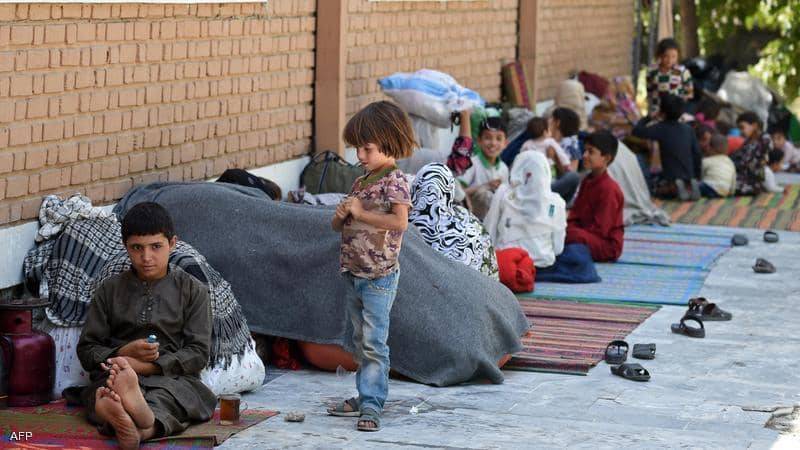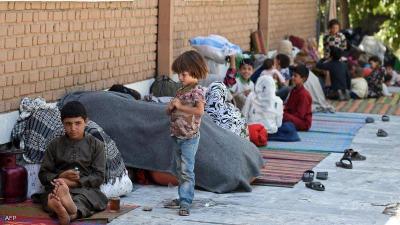Under the title "Afghanistan: Displacement of Tens of Thousands as Taliban Approaches Kabul," Sky News reported that as Taliban fighters come close to taking control of the capital, Kabul, tens of thousands in Afghanistan find themselves forced to leave their homes and flee into the unknown. With the worsening security crisis and renewed fighting between Afghan forces and Taliban militants, the United Nations has urged Afghanistan's neighbors to keep their borders open for refugees fleeing the country, exacerbating the displacement crisis that the country is already experiencing.
Overnight, tens of thousands faced two painful choices: risking their lives and their families' lives within their homes, or relocating to less dangerous but homeless areas. In recent days, thousands have already been displaced to Kabul as the Taliban's control expands, but the capital may not be their final refuge, as reports indicate that it is near falling into the hands of the militant group.
A displaced person from Balkh province stated, "Look at my children's situation here. They have been sleeping on mats for nearly two days. No one helps us provide water, food, or a place to sleep." The Taliban has made significant progress as they resumed their attacks after the United States announced its complete withdrawal from the country.
In recent days, the group has rapidly progressed, taking control of numerous provincial capitals. Since the resurgence of Taliban operations, a sense of anxiety and fear has dominated the Afghan populace, with approximately 330,000 citizens displaced since the beginning of this year.
Like many residents, a woman named Farida, who fled with her family from Kunduz to the capital, blames the Afghan government. She said, "The disaster began when the Americans left the country. I do not blame the Americans, but the Afghan president is the one who bears responsibility."
As a result of the evolving situation on the ground, the United Nations warned that Afghanistan is on the brink of another major humanitarian crisis and called on neighboring countries to keep their borders open to welcome fleeing refugees. On Friday, the Taliban reached the outskirts of Kabul, continuing their advance in Afghanistan as the U.S. and U.K. prepare to swiftly evacuate their citizens and diplomats.
On Friday, the Taliban took control of Pul-e-Alam, the capital of Logar province, just 50 kilometers south of Kabul, and now control about half of Afghanistan's provincial capitals, all of which fell within less than eight days. This follows the group's capture of Lashkar Gah, the capital of Helmand province in the south, just hours after the fall of Kandahar, the second-largest city in the country, located 150 kilometers to the east.
The U.S. Department of Defense stated on Friday that Kabul does not appear to be facing an "imminent threat" despite the rapid advances of Taliban fighters. British Prime Minister Boris Johnson pledged not to "turn a blind eye to Afghanistan," urging Western nations to work with Kabul to prevent the country from becoming fertile ground for terrorism once again.
NATO Secretary-General Jens Stoltenberg announced that the alliance will support the Afghan government "as much as possible" and will work to "adjust" its diplomatic presence.




